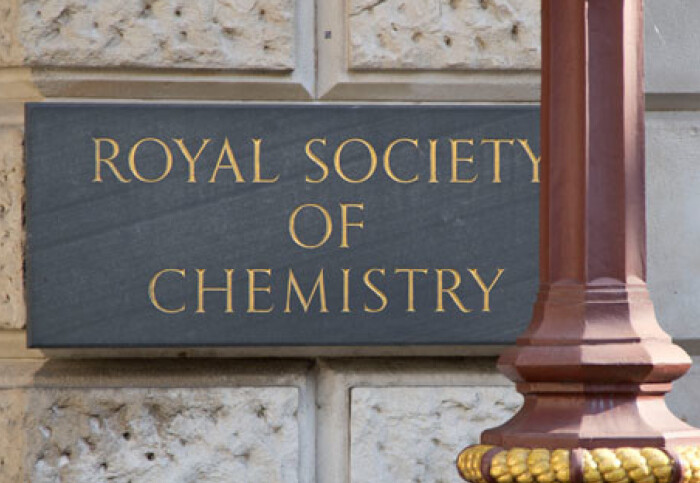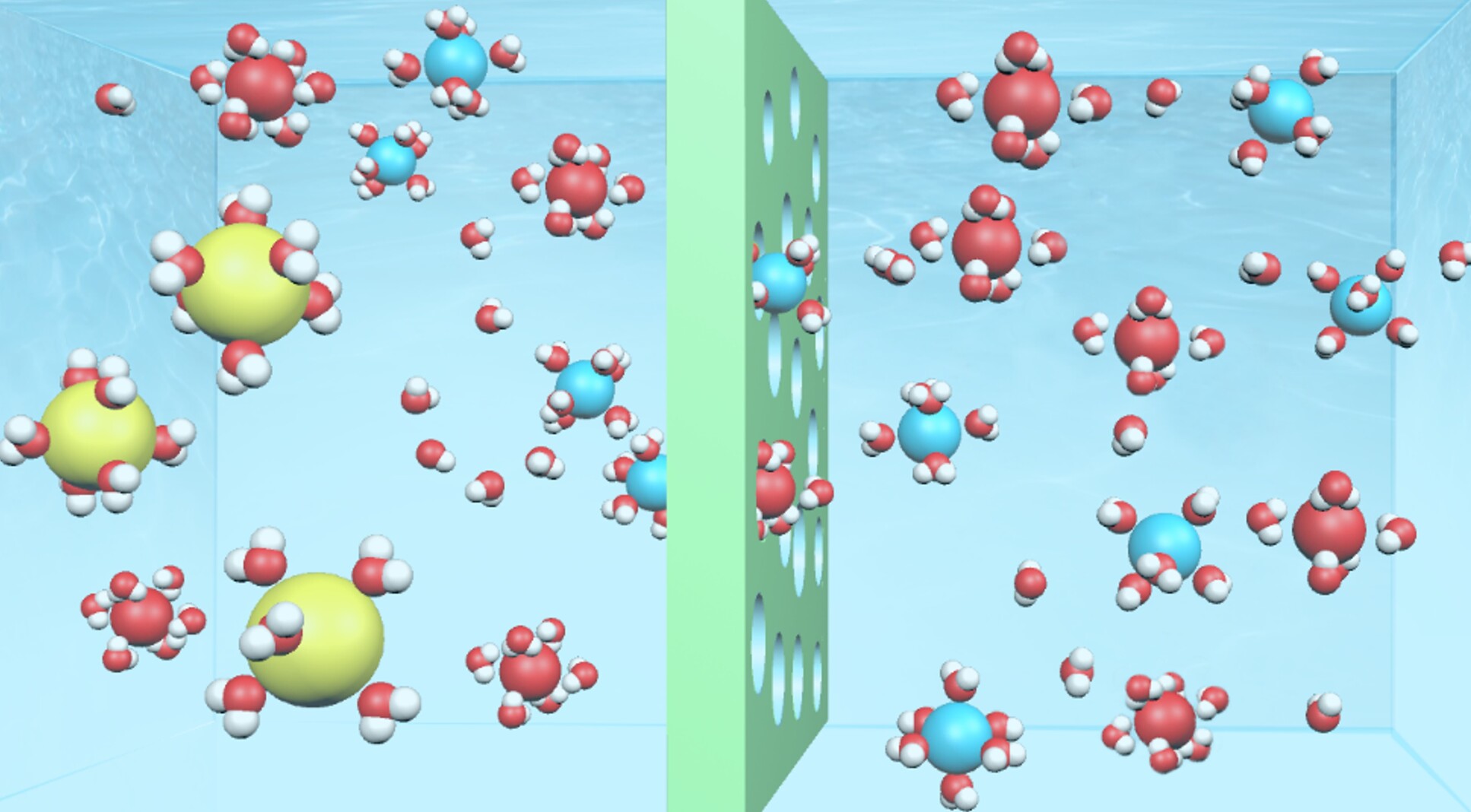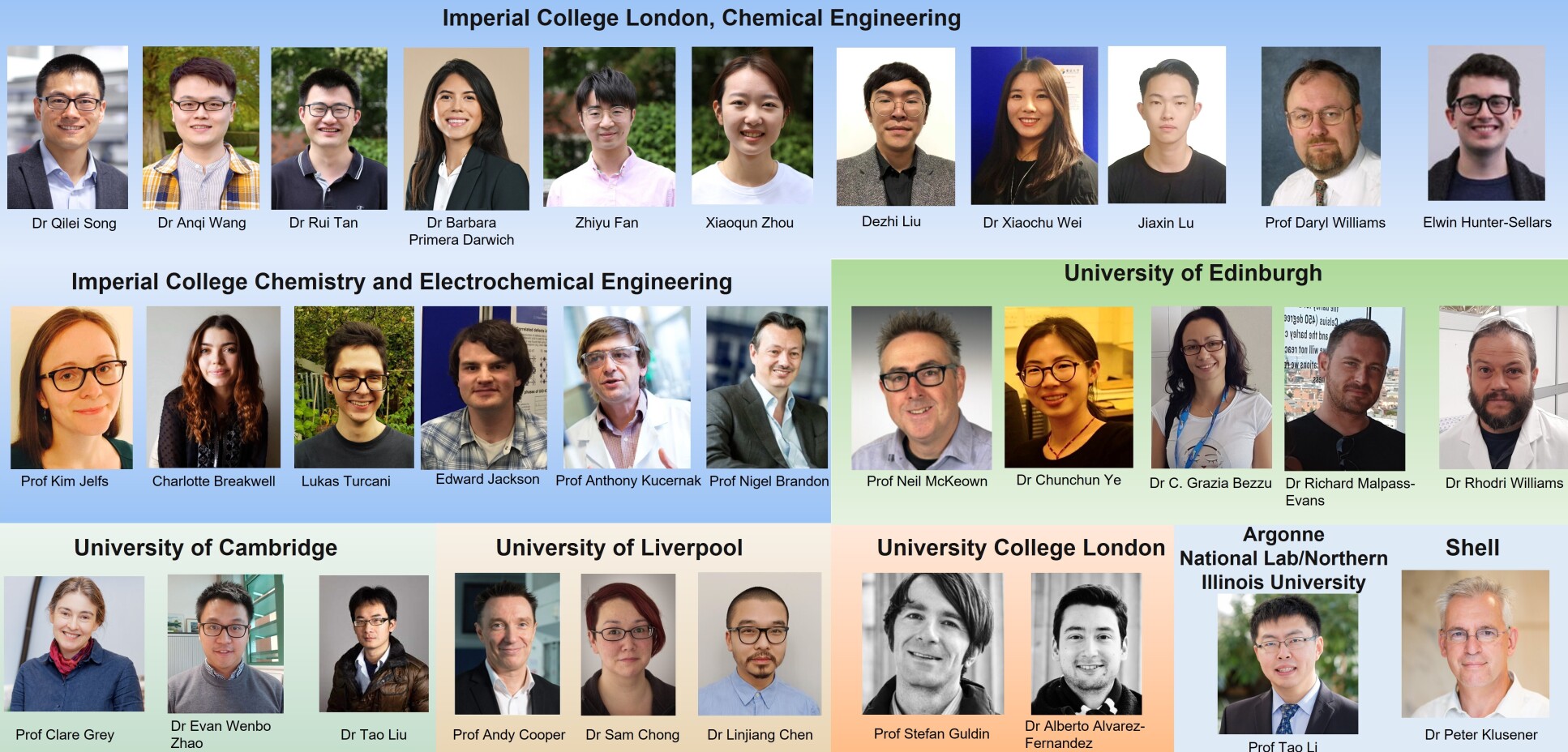Synthetic chemist and battery-membrane team win RSC awards

Professor Nicholas Long and the Microporous Membranes Team have won accolades in this year’s Royal Society of Chemistry awards.
The two awards are in the Research & Innovation Prizes category, which recognise brilliant chemical scientists carrying out amazing work in academia and industry.
Dr Helen Pain, Chief Executive of the Royal Society of Chemistry, said: “The RSC’s prizes programme enables us to reflect on and celebrate the incredible individuals and teams whose brilliance enriches our knowledge, advances our understanding, and brings new ideas and technologies that benefit society as a whole. We’re very proud to recognise the contributions of our winners today.”
Professor Nicholas Long - Interdisciplinary Prize
Professor Long, from the Department of Chemistry at Imperial, is awarded for ‘innovative synthetic chemistry applied to the fields of functional materials and biomedical imaging’. He receives £5,000 and a medal.
Professor Long and his team design and synthesise new chemical bonds or combinations of elements for a wide array of uses. For example, a new molecule could be used as an industrial catalyst, a conducting or switchable material, or as a biomedical imaging probe.

In this latter area, his group are developing less toxic MRI (magnetic resonance imaging) contrast agents, as well as fluorescent and radiochemical probes that can provide better and earlier disease diagnosis. They are also working on metal-containing nanomaterials that target cancerous tumours. Their solar cell work is aimed at producing cheap, stable and flexible solar devices, with excellent efficiencies.
After receiving the prize, Professor Long said: “I am absolutely delighted to win this prestigious prize from the Royal Society of Chemistry. I would like to say a big thank you to all the current and past members of my research group, alongside my many collaborators who have all helped in my research endeavours over the past 25 years.
“These collaborations have opened up new areas of application for my research and it would have been impossible for me to win this Interdisciplinary Prize without my collaborator friends. Plus a big shout-out to my family for their endless love and encouragement! I am truly honoured to win this award, and to join the impressive list of its previous winners.”
The Microporous Membranes Team - Materials Chemistry Horizon Prize: Stephanie L Kwolek Prize
The team of academic and industrial partners from London, Edinburgh, Liverpool, Cambridge, and Illinois, has been recognised for its work to improve energy storage. The Horizon Prizes celebrate ground-breaking developments which push the boundaries of science.
The Microporous Membranes team, led by Imperial and the University of Edinburgh, won the accolade for developing new membranes for organic-based redox-flow batteries (RFB). The high performance of these membranes could ultimately create more economically competitive battery systems for energy storage.

The group – which brought together minds with specialities in areas such as synthetic chemistry, computational chemistry, membrane science and engineering, and electrochemical engineering – also receive a trophy and a professionally produced video to celebrate the work.
After receiving the prize, team leader Dr Qilei Song, from the Department of Chemical Engineering at Imperial, said: “We’re thrilled our work to develop a new generation of ion-exchange membranes is being recognised.
"These microporous membranes can be used for a variety of applications, including in the storage of renewable energy, and so they have the potential to make a real positive impact in the fight against climate change.”
The team successfully developed a new generation of ion-conducting membranes based on polymers of intrinsic microporosity, demonstrating their exceptional performance in organic-based RFB chemistries. With funding support from an ERC Proof of Concept grant, the team are exploring commercialisation of the membranes.
The new membranes show great promise for the development of inexpensive electrochemical energy storage and conversion technologies, which would support the storage of renewable energy from sources such as wind and solar and therefore help efforts to transition away from fossil fuels.

The Imperial members of the Microporous Membrane Team are:
Department of Chemical Engineering
- Dr Qilei Song, Senior Lecturer in Chemical Engineering
- Anqi Wang, PhD student and Postdoctoral Researcher
- Rui Tan, PhD student and Postdoctoral Researcher
- Barbara Primera Darwich, MSc student
- Zhiyu Fan, PhD student
- Xiaoqun Zhou, Undergraduate student
- Dezhi Liu, PhD student
- Xiaochu Wei, PhD student
- Jiaxin Lu, MRes student
- Daryl R. Williams, Professor
- Elwin Hunter-Sellars, PhD student
Department of Chemistry
- Kim E. Jelfs, Professor in Computational Materials Chemistry
- Charlotte Breakwell, PhD student
- Lukas Turcani, PhD student
- Edward Jackson, PhD student
- Anthony R. Kucernak, Professor of Physical Chemistry
Department of Earth Science and Engineering
- Nigel P. Brandon, Professor of Sustainable Development in Energy
Article text (excluding photos or graphics) © Imperial College London.
Photos and graphics subject to third party copyright used with permission or © Imperial College London.
Reporter
Hayley Dunning
Communications Division